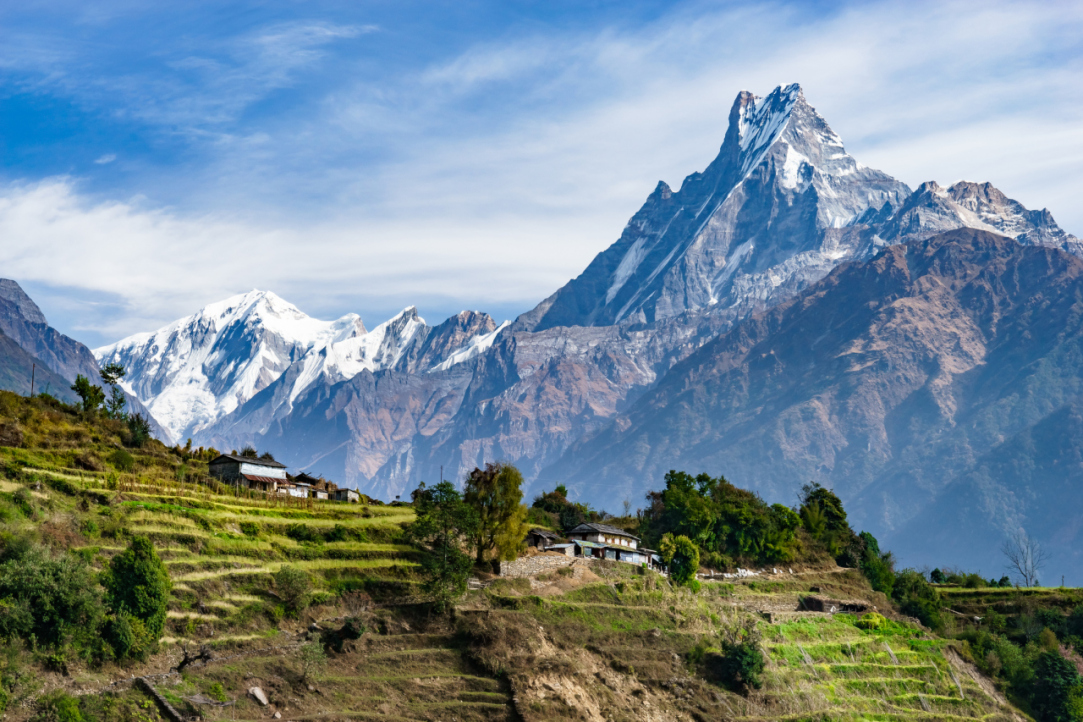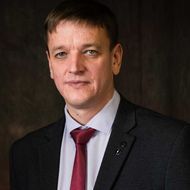Expedition to the Himalayas: What To Expect
Pretty soon, six students of HSE University-St Petersburg will go on an expedition to the Himalayas jointly organised with the University of Delhi. We found out the details of the international project from Alexander Sorokin, Dean of the St Petersburg School of Social Sciences, and addressed some questions to Agata Kurnos, 4th-year student of the Bachelor's programme 'Public Policy and Analytics', who will join the expedition.

The expedition to the Himalayas is the first international project which is carried out for a group of students from different HSE University-St Petersburg faculties. It was organised by the School of Social Sciences together with the University of Delhi. Six students will head to the Himalayas to collect data about the anthropogenic impact on the ecosystem of this region as well as its natural resources and environmental sustainability. We talked to Alexander Sorokin, Dean of the St Petersburg School of Social Sciences, about the upcoming expedition and its value for the campus.

— For our students, the expedition to the Himalayas is a unique chance to immerse themselves in research on climate changes in India. Prof Sorokin, could you tell us which region the expedition will cover and how the project idea appeared?
— The participants will visit Jammu and Kashmir as well as Ladakh. There, they will collect the data to assess the role of traditional systems in the sustainable development of the Indian Himalayas.
The idea of a joint expedition appeared in October 2023 when we visited the University of Delhi and talked to colleagues from PGDAV-college who engaged in issues of socio-ecological and socio-climate changes in the Himalayas. These issues are especially topical from the scientific as well as practical points of view because they help to develop measures and practices for adaptation and resilience to eco-climate changes.
I had been acquainted with Pardeep Singh, Professor at PGDAV college, before that. However, a face-to-face meeting in autumn allowed us to find new formats for research cooperation, including expeditionary and field research.
— What perspectives does the project open for students and the campus?
— The project will give the researchers new data about the ways local communities adapt to climate and ecological changes. In mountain ecosystems, climate changes are especially evident: looking at the process occurring in the Himalayas, one can draw conclusions about other mountain systems as well, including Russian ones.
The researchers themselves will be able to gain and enhance their skills and competencies in the spheres of communication, analytics and the English language. Of course, it will be good physical training—after all, they are going to hike in the mountains.
— What results are you expecting from the expedition to the Himalayas?
— This expedition is the first. We strived to expand the cooperation with our colleagues in the sphere of joint field research, and at the same time—develop academic exchange for our staff and students and launch new research projects. This expedition will result in a media product (a video or a documentary) and a database of interviews which will become a basis for research papers.
— Recently, there has been a selection of students who would head to India for the expedition. How did it go? What was the determining factor in the candidates’ selection?
— We received 108 applications. Each one was reviewed by three experts. The main selection criteria were the experience of field work, participation in collective research projects, strong interest in the topic, and high English proficiency (and a document confirming this fact). Then, we compiled a list of 12 participants with whom we had online interviews. In the end, we selected six students from four faculties (School of Economics and Management, School of Arts and Humanities, School of Social Sciences and School of Law). Now, we can safely call this expedition all-campus.
I would add for myself that the choice wasn't easy. The candidates and their applications were well-elaborated and competitive. I would like to wish everyone who didn't pass the selection this time to follow the news and apply again. For our part, we promise to find new opportunities for students: both new expeditions and other projects. We are already working on them with our international partners.
The team of researchers will head to New Delhi already on April 26. There's little time left before the trip, which is why we talked to Agata Kurnos, student of the Bachelor's programme 'Public Policy and Analytics', about her expectations of the expedition.

— Could you tell us why you decided to participate in the expedition?
— For me, this expedition was an opportunity to immerse myself in a completely unique culture, nature and history. It will be interesting to touch another world, see the daily routine and problems of local people and contribute to the solution of such problems. Besides, this trip will allow us to develop professional skills and personal qualities. In addition, any international cooperation plays a crucial role in strengthening mutual understanding between people of different cultures. I appreciate any chance to exchange knowledge and experience between countries and individuals.
— Which skills gained during the studies helped you to pass the selection?
— I believe that the most useful were soft skills, especially the ones related to communications: an ability to present an idea and give reasons for your opinion. In addition, even though it is not that obvious, it seems to me that a major role was played by an ability to take responsibility and active participation in events—university ones and others.
— What competencies do you expect to gain during the expedition?
— First, the development of intercultural competencies related to an ability to understand representatives of various countries, interact and cooperate with them. Secondly, I will learn to plan and carry out research, collect and analyse data (especially in English). Besides, I would like to develop environmental awareness and explain how people and the environment interact with each other. I believe that working in an expedition can disclose unexpected challenges—it will teach me to analyse problems and find solutions in non-conventional situations.
— What can you recommend to students who also plan to participate in international projects?
— Don't stop learning foreign languages and improve your knowledge. Take an interest in the cultures of other countries and actively participate in projects, volunteer programmes and research to gain practical experience. Try to spend enough time preparing a decent resume and a motivation letter, they will show you in the best possible light and display your genuine interest in participation.

